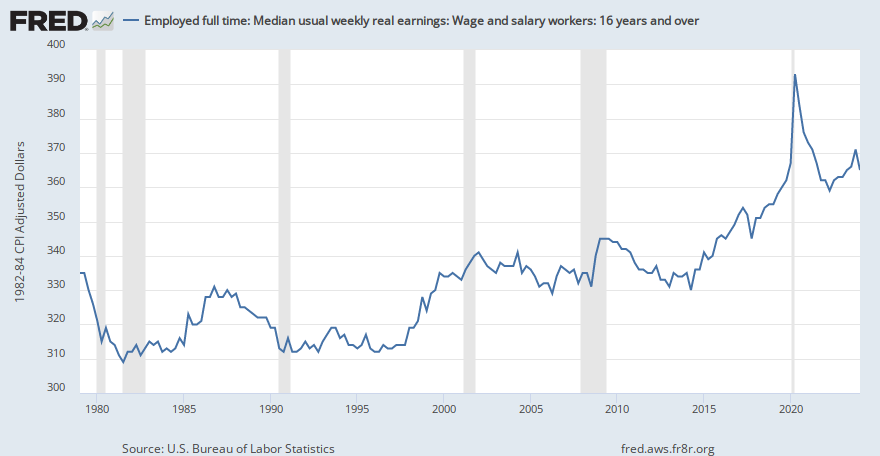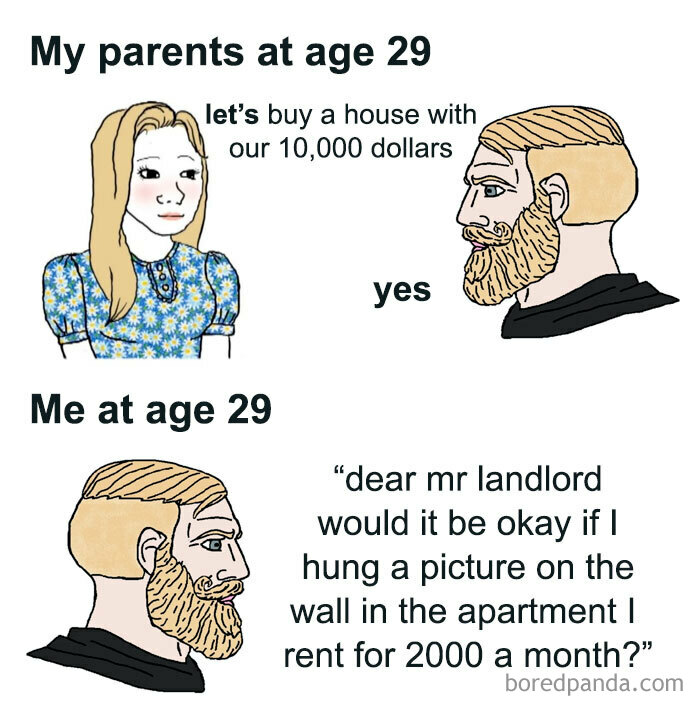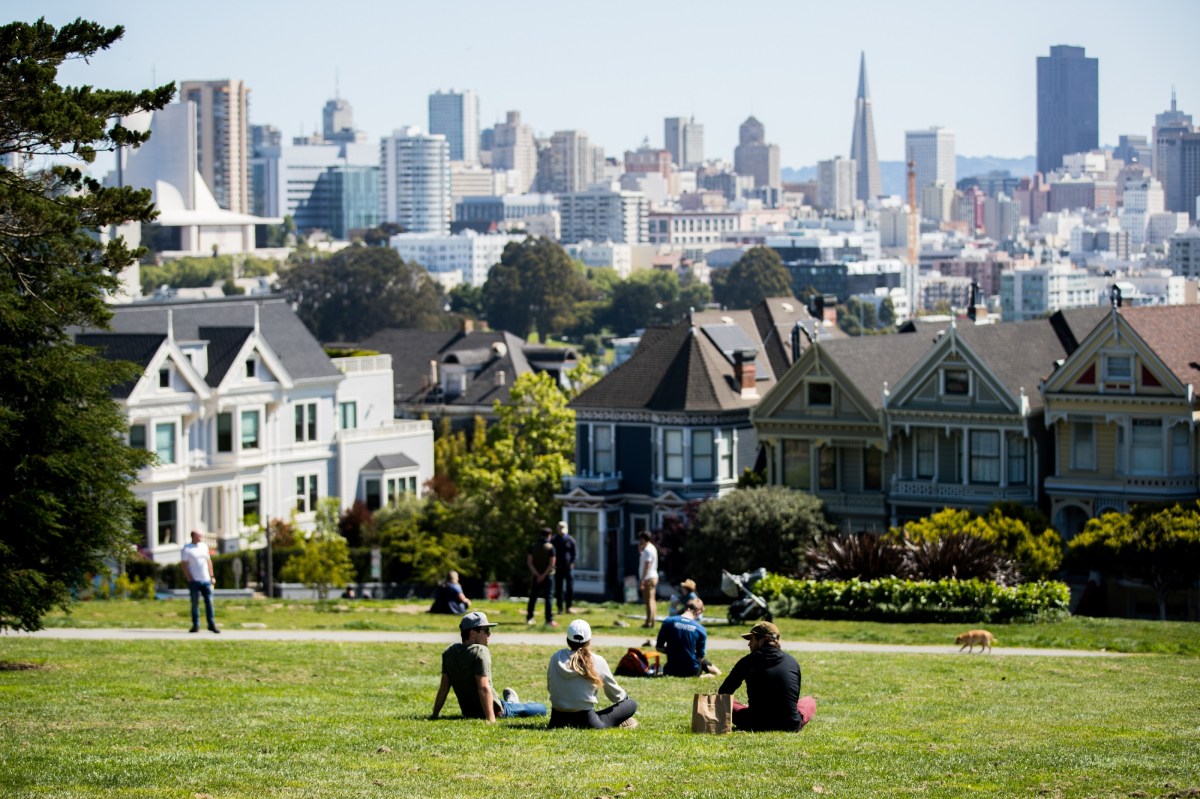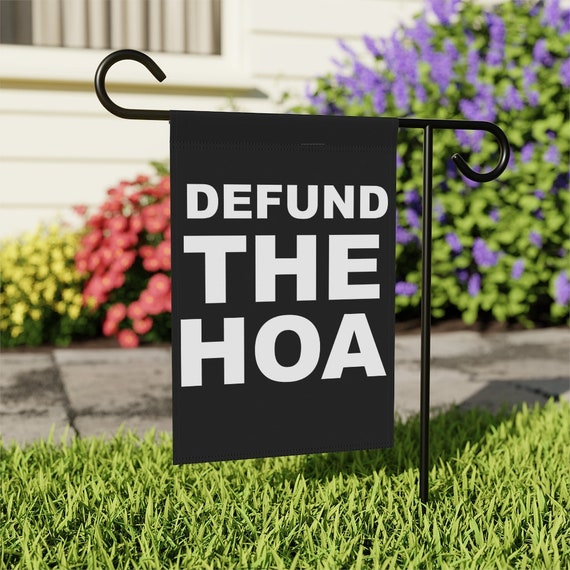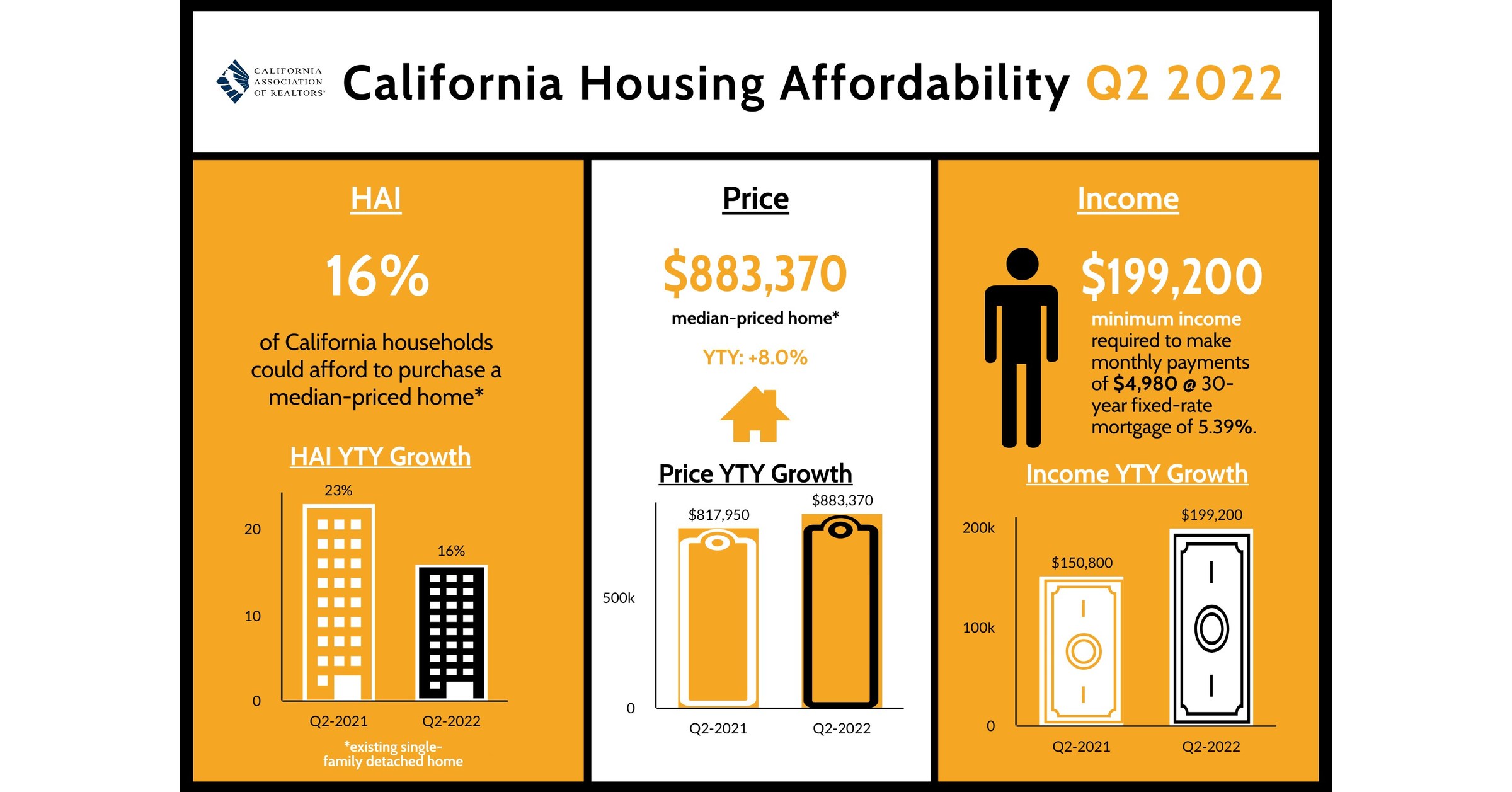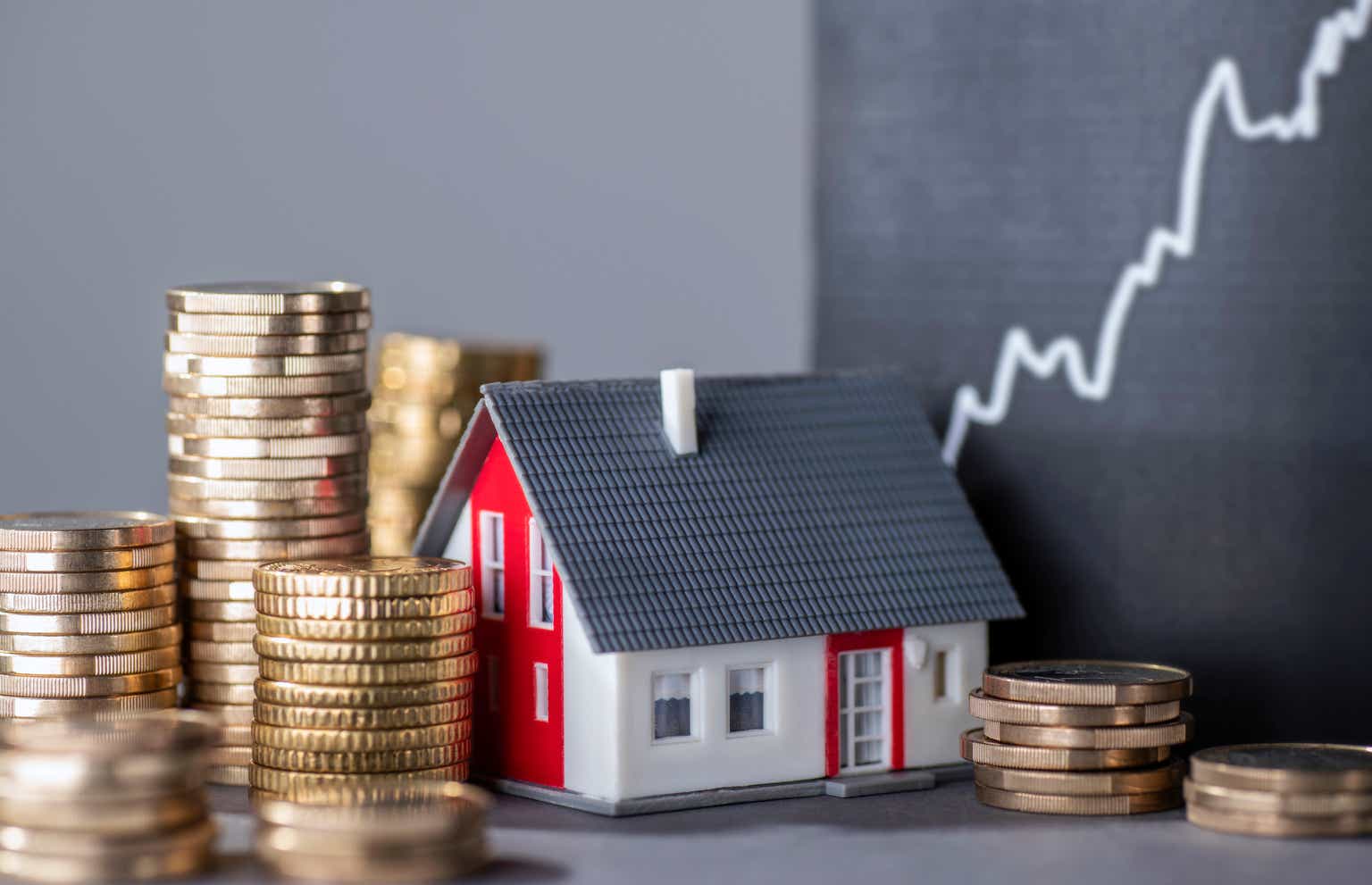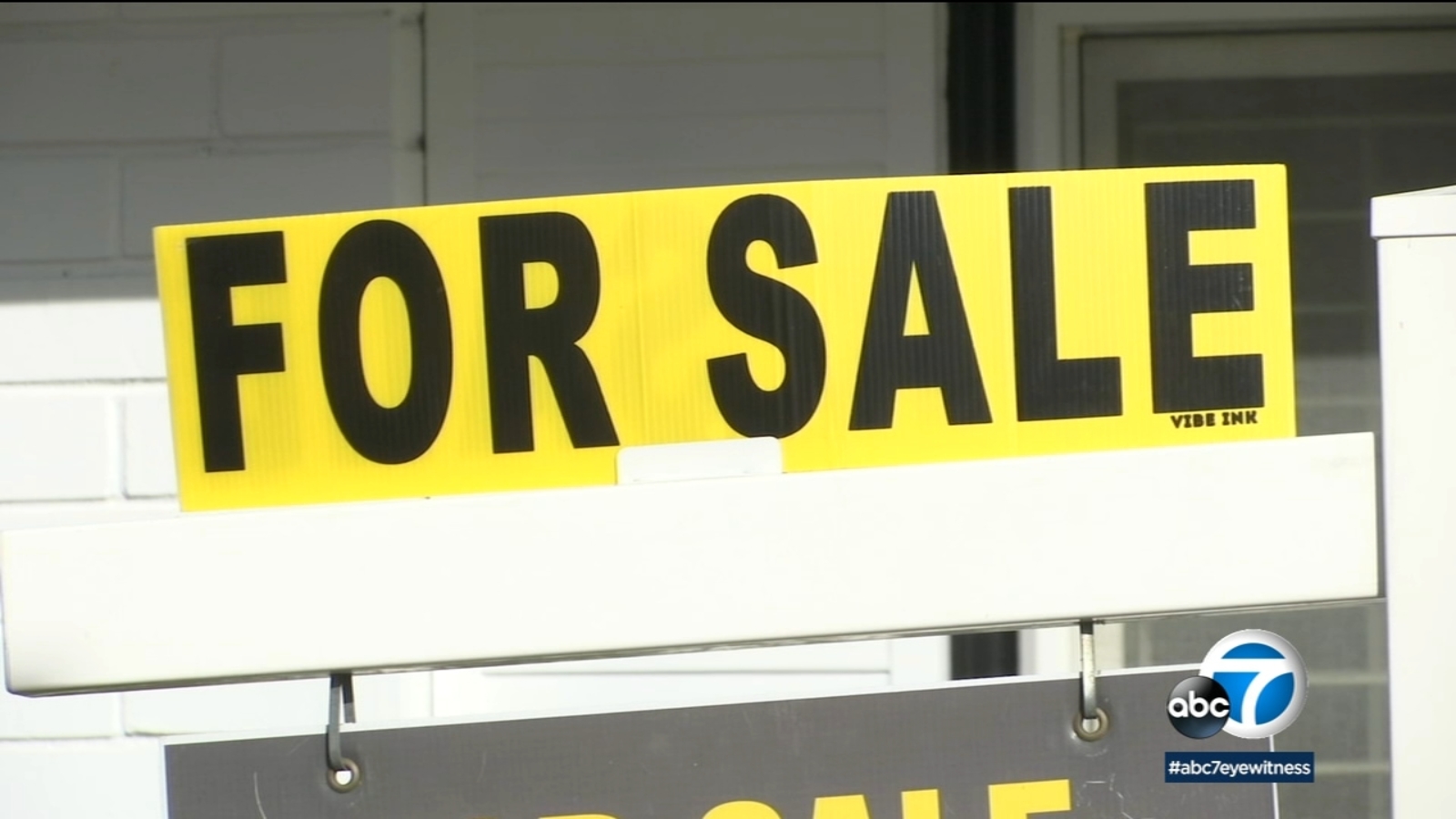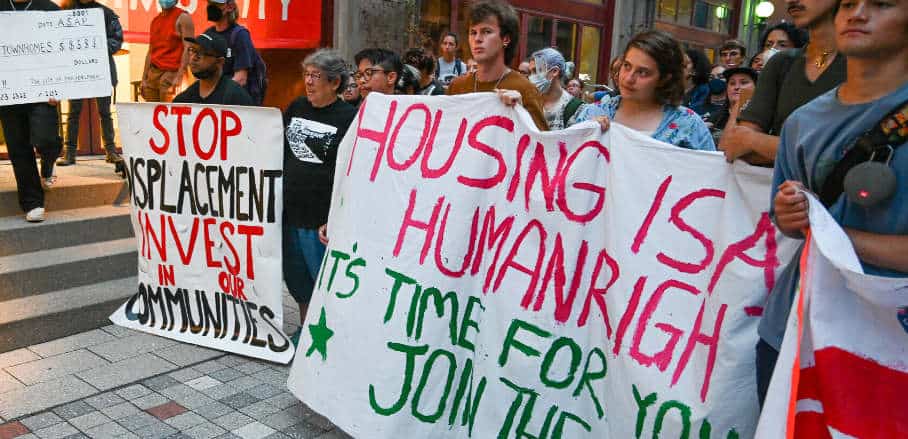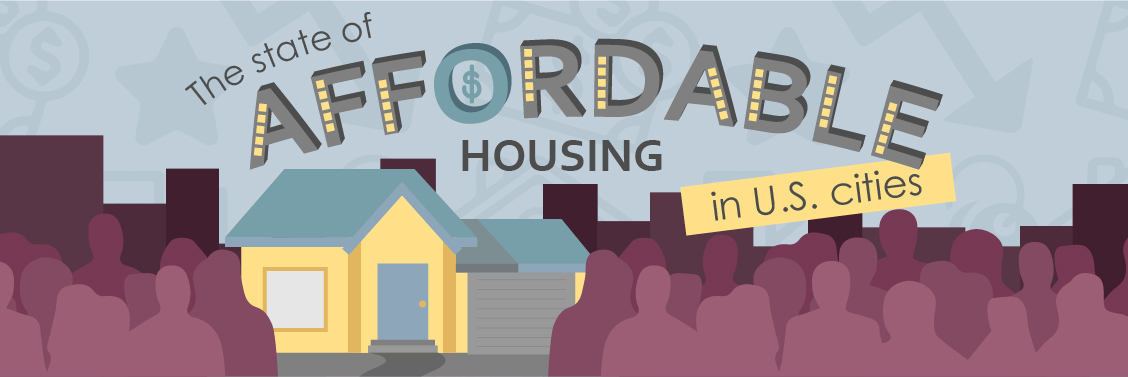First of all, this is not a prediction. Instead, I'm stating it's a morally good thing for houses to be inexpensive permanently.
Additionally, we live in the current world with the way it is currently incentivized. I am guilty of all the stupidity and immorality as I am argue here. I am a homeowner in the suburbs and own more than I need-a complete hypocrite.
But, I urge that responses that argue that is not in fact morally good for housing to be very inexpensive to use something other than hypocrisy as the counter.
A better version of ourselves practically necessitates that the current version is hypocritical with respect to new ideals.
Benefits
1. Reduced homelessness. When it costs less to give people homes, it takes less to do that. Almost a tautology.
2. Reduced poverty. The vast majority of "wealthy" people have the majority of their "wealth" in their homes. But the main productive value a home is that it provides for people is shelter. The excess beyond shelter(and some comfort), takes land away from farming, forest land, and other means of productive use of space. If the basics were affordable for everyone, the extra, especially if there's little speculative gain in exchangeable value, will be seen as the narcissistic and wasteful flex that it is. All the other things people exchange their money for will gain where housing loses.
3. Reduced pollution. The most wateful way to live is suburbia. Rural areas when cultivated well produce food. Due to density, cities actually have less pollution per capita(and can be reduced further if mix use could create shorter or no commutes), and undeveloped land is great if reforested.
1. "Homelessness" in of itself is a lot more complicated than just not having a home. Most
chronic homelessness is the result of untreated mental illness, and gatekeeping communities who up the price of rent for "aesthetic" reasons (aka they don't want commie blocks in their city), A good example is California, with their rules about how highrise apartment buildings cannot be built. And no, earthquakes are not a factor in this at all (see Japan). The reason homes are not being built, is because the rich people living there don't want commie blocks in the distance blotting the beautiful landscape.
2. Poverty cannot be cured, unless we can somehow make the rich pay taxes equally to the poor. Which they do not. Taxes exist only for poor people currently. Vote to abolish taxes (which are unconstitutional and the reason the revolutionary war was fought to begin with), and the price of everything will drop significantly. Also what you are really referring to when it comes to "wealth" in their "homes" is called assets. Assets are a way of storing money. There are liquid and fixed assets, and they exist in a way to manipulate money to maintain wealth. While I agree that people shouldn't own too much land (aka monopolies like bill gates and the government). I also don't agree with seizing and giving away their land. Because lets be honest. Rich people and politicians are the same people. You're not actually taking away from anyone. What goes from one billionaires pocket, goes directly into another. None of this will help the poor. And the government controlling it is just as bad as billionaires.
3. The majority of pollution is entirely in industrialization. The first world exports most of its pollution to the 3rd world. That is why China is a massive pollution hellhold, but if we regulate them we literally cannot function as we do now since we have become a service based economy. Those countries do not have the same regulations as the first world. You having cheap access to things, is the problem with pollution. I would say a return to more natural, but difficult ways of doing things is superior for the environment and people (not using automation, chemicals etc). Have everything made domestically and use our own resources. I am also more for planting trees, cleaning and abolishing plastic, and getting rid of tons of pesticides. We are producing so much food with the use of pesticides, much of it goes to waste. If we never used pesticides, we might actually break even on both food production and it would help trade. It would also be reducing the hazardous waste that is polluting our environments and causing genetic and mental deformities in people. (see atrazine scandal).
Also no, cities produce most of the pollution, especially if they have an airport.
"In 2019, private jet travel emitted an estimated 899,000 metric tons of carbon dioxide(CO2)into the atmosphere. This accounted for 0.9% of globalCO2 emissions from civil aviation that year.
A typical private jet emits carbon at a rate of 4.9 kilograms per mile.
For comparison, the average person emits about 0.6 metric tons of CO2 per year and a commercial airplane emits about 85 grams per passenger per kilometer.
Private jets are typically used by the wealthy for business or pleasure trips. The use of private jets has increased in recent years as the number of millionaires and billionaires has grown. In the United States, there are an estimated 18,000 private jets.
The impact of private jets on the environment is significant, but it is often overshadowed by the much larger emissions of commercial airlines."
Useful concepts
1. We can see inflation as a list of numbers instead of a single number. I know we're trained by the media to think of it as one abstract number. But in our day to day life, if my wife and I like a particular milk for a combination of health and taste reasons, we're not going to suddenly switch to a substitute. Each thing we regularly buy has it's own change in price. This includes what we pay for shelter. For most people, this means paying either a rent or a mortgage. At one time, when cars were new, they were more expensive than houses. Now houses can go for 10 times what cars go for. Financial experts now call cars "financial napalm" but consider houses part of a diversified portfolio. Interestingly, even though most people don't think of it this way, we pay exponentially less every couple years for transistors (in the form of electronics)
2. Socially sustained exponential decreases in price exist. The most famous of these is known as Moore's law (the exponential decrease in the cost of transistors). But it must be stressed that this is not a law of physics. It is a collective goal sustained by increasing efforts (see Moore's Second Law) in the face of hurdles put up by the laws of physics. They may fail at any point, and people point to evidence it's slowing. There are others, like the exponential drop in cost of sequencing a human genome. Why don't we make collective goals enlisting humanity's creativity to exponentially lower the costs of basic needs like food and shelter?
3. We know how to build vertically. It's out of favor now because density also brings traffic and could potentially strain resources. But these limitations could be designed around. Future cities could be much better than current ones. Suburbia could also become more dense.
4. Mix use land may be more productive. Trump bragged about how he lived and worked in the same building in the Art of the Deal (I am no Trump fan, but I take ideas from everyone). Imagine if the same area is used for power production, green sections for photosynthesis and recreation, housing, shopping, farming, and business...like a city in a building. Would that be possible?
5. NIMBYs. I feel sorry for people named Karen. I'm not sure why that's the name picked for people causing significant inconvenience, if not harm, for others simply to get their whims met. I think a better name would be a NIMBY-which stands for not in my back yard. I understand raising legitimate concerns about various things. But instead of voicing concerns and allowing people to address the plans, often they go into blocking a project mode before the project even takes shape.
6. People make fun of status seekers and speculators in one domain but not others. It's easy to make fun of someone who paid ridiculous amounts of money for a bored Ape NFT, but there are pieces of modern art I don't get either. We make fun of people owning virtual pieces of metaverse real estate, but applaud people getting way more home than they'll ever need in the real world. The difference is the real world extra is eating a lot more resources than the virtual nonsense(even though it eats resources also). I'm not advocating the hype around the metaverse and NFTs. I am pointing out that this stupidity happens already in the real world. Buying exhorbitantly for the status is there for NFTs as well as for the extra of a house. Waisting tons of the world's resources buying because you are hoping for the price to go up happens both with bitcoin as well as with the extra of a house.
1. Inflation will never be clear, because the numbers are skewed and intentionally hidden. What people can say is "inflation" is merely rich monopolies marking up things just because they can. Production is actually almost always at an all time high. What monopolies do, is sabotage smaller competition and have the media say there is a shortage, and that is why the numbers are going up because monopolies are the only ones that can afford to put their things on sale. For example, rich billionaires in California buy up tons of houses and land in another state. They don't use the land, and the houses are empty. They wait for the housing market to inflate, then sell for a massive profit. All while producing homelessness and causing rent prices to skyrocket. This is a product of asset manipulation like I mentioned before. They also want to convert everything into a "renters society" where only the rich own things.
This applies to many things, across many nations as well, by the same people. The manipulations are across trade, resources, and production. These monopolies control everything. For example, the reason why cars are so expensive right now is due to a microchip shortage. Something like 90% of all microchips are produced in Taiwan. Them having issues, literally impacts almost all industrial machine computer productions across the world. This is why domestic production is so important.
Rich people literally don't care about helping humanity with a few exceptions. What got them to the top, their lack of empathy, is the reason they don't care. Most of it is an old boy's club too (meaning they only promote their friend and family). Rich people live in a completely different world to most people, to the point we normal people are practically a different species and alien to them. People really need to understand this.
3. The reason we don't build vertically as much, is people want space. Living like sardines, even if sustainable, damages your mental and physical health. The only thing governments can do is gaslight the population into liking not having a garden and greenspace in their immediate surroundings. The only real solution is to stop over population.
4. I agree with mixed use land. Things shouldn't be so violently segregated. Especially in places like the USA. I also agree with having as much green as possible in cities, to reduce light absorption which decreases temperature. (ie: places like Phoenix). There have been movements to make cities more natural too. Which I fully support. The term is "walkable cities".
5. Most boomers are all entitled undereducated pieces of shit, just saying. They are the reason our world is going to shit right now. 90% of their shit is entitlement, and they can't grasp the fact that things have changed since they were a kid.
6. NFT nonsense is just a sign of a dying culture imo.
I do not know if I addressed all your questions, but feel free to ask me to clarify on certain things if you wish. Or if I missed something.
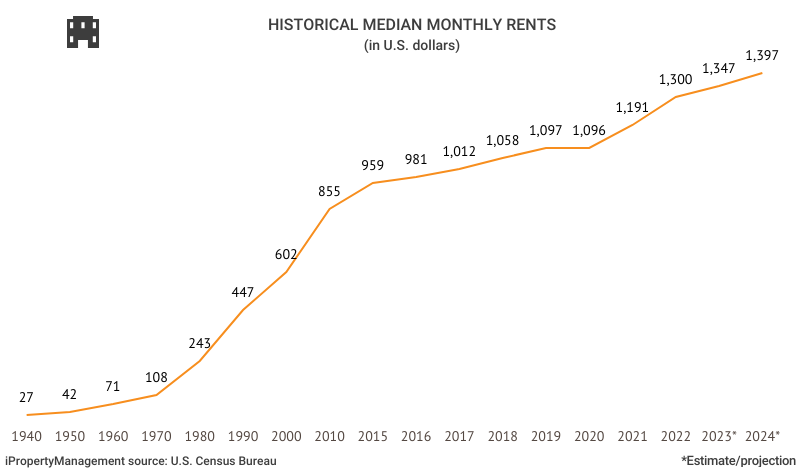
 ipropertymanagement.com
ipropertymanagement.com
 www.usinflationcalculator.com
www.usinflationcalculator.com
